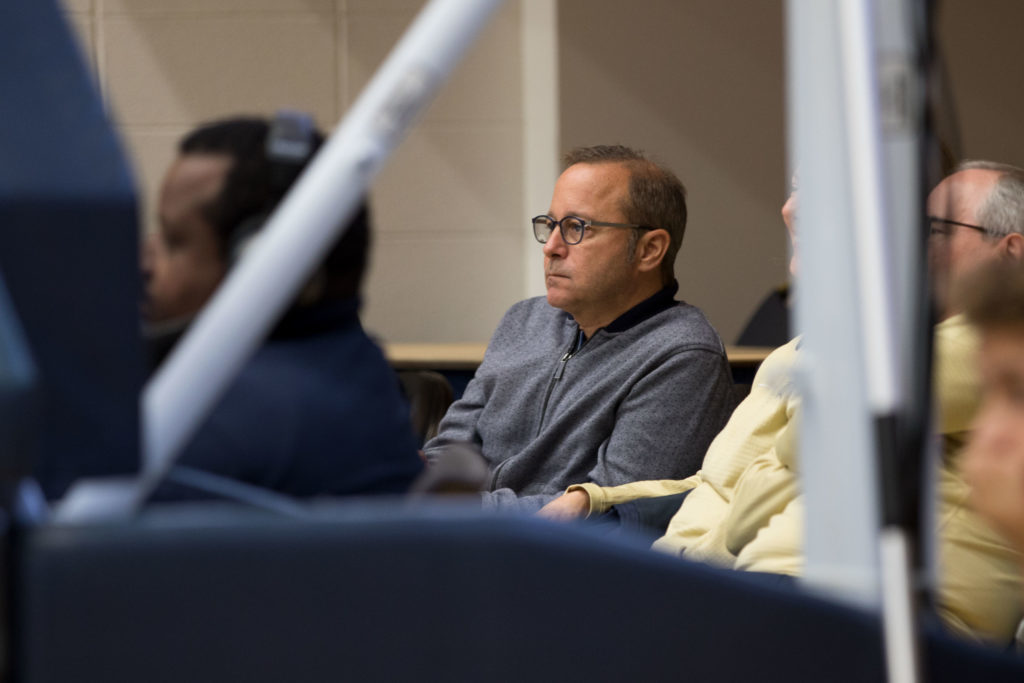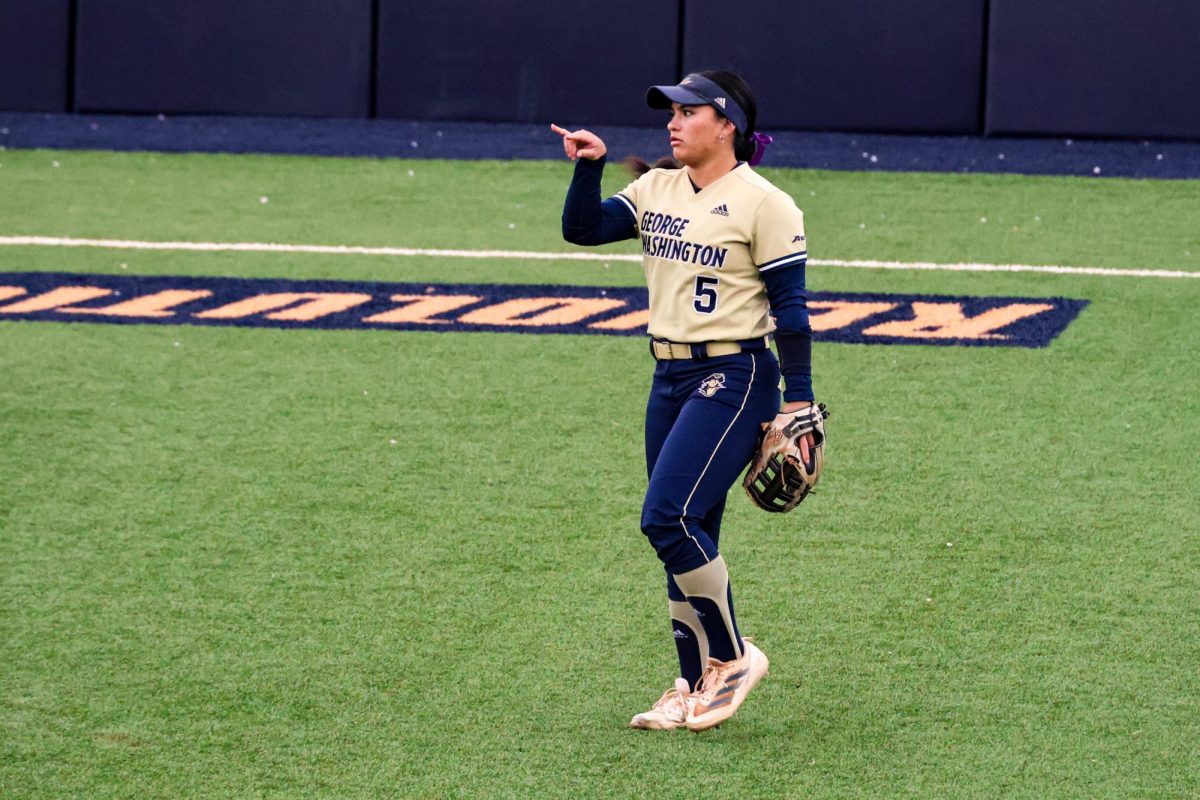The University asked a judge to throw out a pay discrimination lawsuit against the athletic department last week.
The U.S. Equal Employment Opportunity Commission filed a suit against GW in September claiming the University’s athletic department paid Sara Williams, the former executive assistant to the athletic director, about $40,000 less annually than a male coworker in a similar position. GW claimed the commission’s case should be thrown out because the EEOC didn’t offer enough evidence to prove equal pay violations or discrimination in the hiring process, according to the motion filed in D.C.’s U.S. District Court Tuesday.
“There is nothing in the Complaint – other than conclusory allegations that this Court must disregard at the motion-to-dismiss stage – that remotely suggests that any of the University’s conduct towards Williams had anything to do with discrimination based on sex,” according to the motion.

Tyler Loveless | Managing Editor
Source: Complaint and Motion to Dismiss documents filed to the U.S. District Court for D.C.
The commission filed the suit in September after Williams, who is currently employed by GW’s Business Management and Analysis Group, submitted a complaint to the EEOC alleging the University violated the Equal Pay Act and Title VII – which prohibits employee sex discrimination, while Williams worked for athletic director Patrick Nero between August 2014 and December 2016.
Just over a month after the complaint was filed, the University responded with a 24-page motion arguing Williams did not formally apply for the position. The motion also cited that the EEOC did not offer sufficient evidence of unequal pay, so the allegations of “adverse employment action” should be dismissed.
Kate Northrup, a lawyer representing Williams and the EEOC, declined to comment on the merits of the case, citing government restrictions.
“The EEOC opposes the relief sought in the motion and intends to file its opposition with the court in the near future,” Northrup said.
If the court does not grant the dismissal, then GW requested in the motion to stay the proceedings, allowing both parties to continue mediating without a trial.
University spokeswoman Maralee Csellar declined to comment on why GW decided to file the motion at this time and whether the University has been in communication with Williams or the EEOC since filing of the complaint.
“We have nothing more to add beyond what was included in our motion,” Csellar said in an email.
The suit called for the University to stop any practices of sex discrimination and provide compensation to Williams in an amount to be determined at trial.
Williams – who did not return multiple requests for comment – was allegedly paid at least $39,000 less than a male coworker who was working in a job under Nero described to be “substantially equal,” according to the complaint filed by the EEOC.
Nero declined to comment on the case through an athletic department spokesman.
The EEOC’s complaint is based on evidence that was referenced in a letter of determination sent to GW in April, but the evidence was never made available to the University, according to the motion. The University claims the omission of the evidence restricted the two sides from engaging in conciliation, which is a process of informal conversations intended to mediate the situation, according to the motion.
“Without access to the Commission’s secret evidence, the University has been deprived of any opportunity to engage in the conciliation process through which the Commission is required to attempt to informally remediate any suspected discrimination,” according to the motion.
The male employee – Michael Aresco, who left the University in April – was promoted to the higher-paying job in January 2016 from within the athletic department, according to the complaint. The EEOC alleges that he was selected for the position after Williams was persuaded not to apply by a University employee, who told her the position was created for Aresco.
The motion alleged Aresco’s role required the use of independent discretion and leadership throughout the athletic department – neither of which were characteristics of Williams’ job, according to the University’s request for reconsideration filed with the motion.
In the motion, the University argued the anonymity of that employee calls into question the validity of the hiring discrimination.
“Although the identity of the unnamed individual(s) – which could include anyone from the janitor to the Provost to Aresco himself – must have been known to either Williams or the Commission, the Complaint conveniently omits that information,” according to the motion.
The EEOC filed the lawsuit more than five months after issuing GW a letter of allegations claiming the University violated the law and more than 11 months after Williams submitted the charge of discrimination. Such a letter is only sent after the EEOC conducts an investigation, according to the Commission’s website.
The commission filed only five suits nationwide citing Equal Pay Act violations in fiscal year 2016, according to the commission’s most recent data.
Equal employment experts said it is uncommon for dismissal motions to be granted and that in this case, the EEOC did provide enough evidence for the case to proceed.
Nicole Porter, a University of Toledo law professor and expert in employment rights, said the charging party can still suffer from “adverse employment action” even though she did not apply for the job. The EEOC just needs to prove that Williams was told the job was for someone else and the motivating factor for that was her sex, she said.
“If I were the judge, I would not grant the motion to dismiss,” Porter said. “I think the EEOC has met its burden for alleging a plausible claim in the complaint.”
If the motion is not granted, Porter said the University would likely file another motion to dismiss based on new evidence found, but it is still expected that the two sides would move to a settlement.
“If that motion is also denied, then it is highly likely that the parties will settle,” Porter said. “A tiny fraction of employment discrimination cases actually go to trial.”





